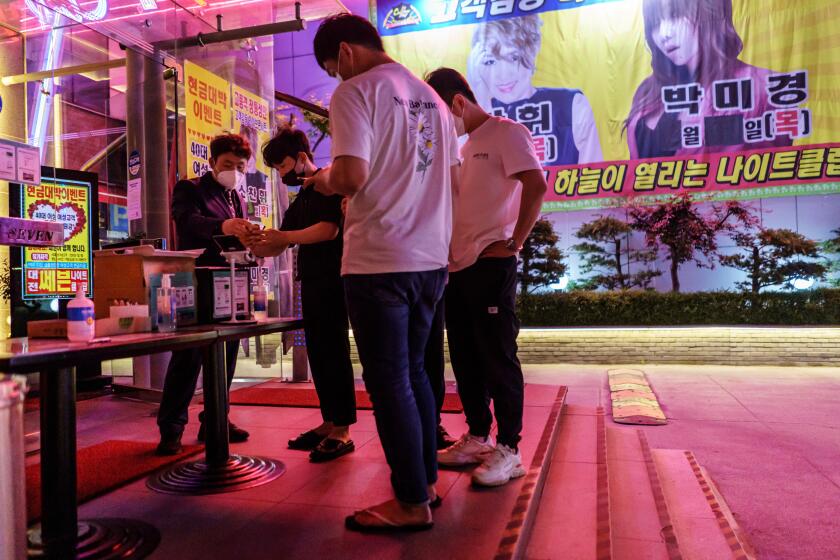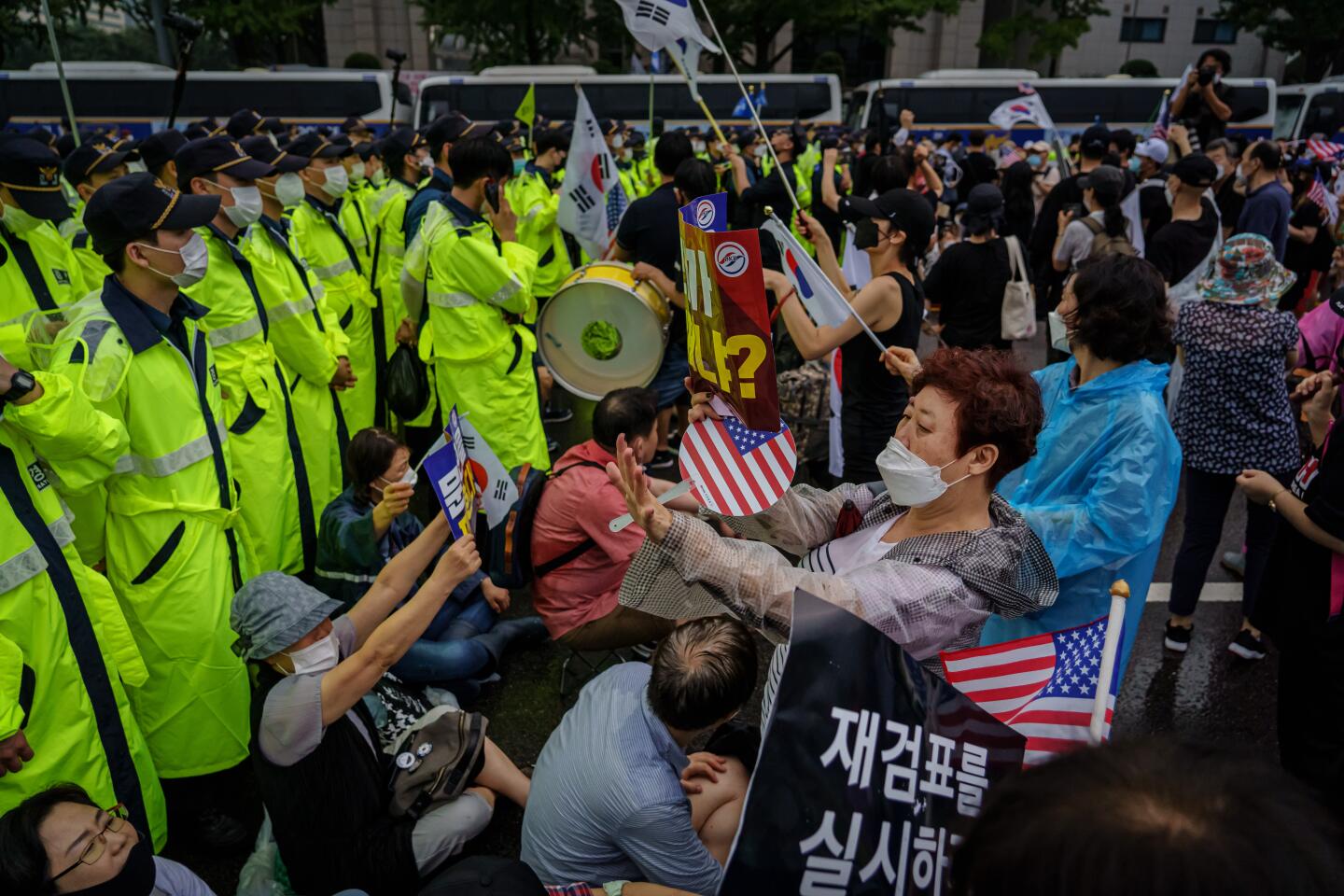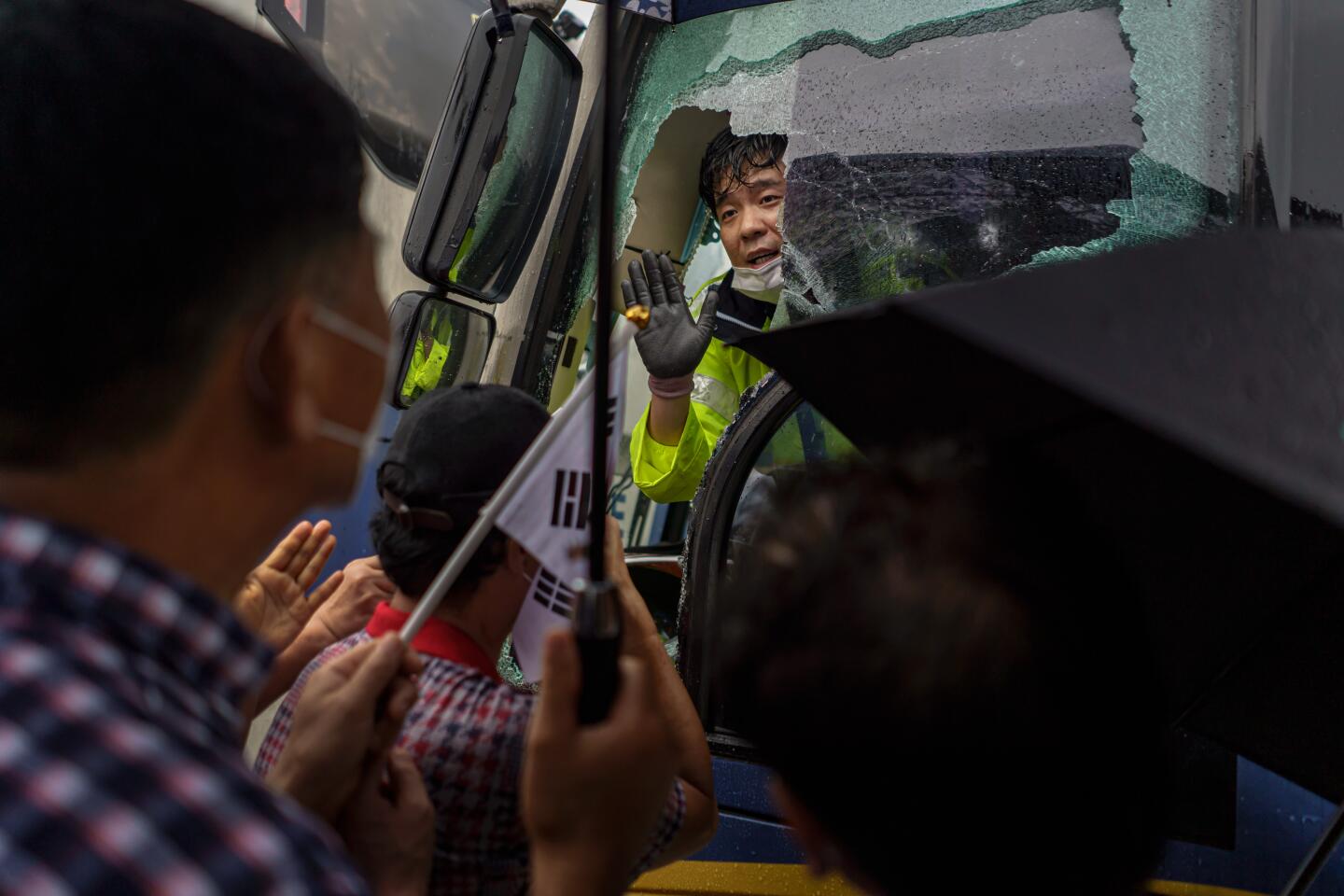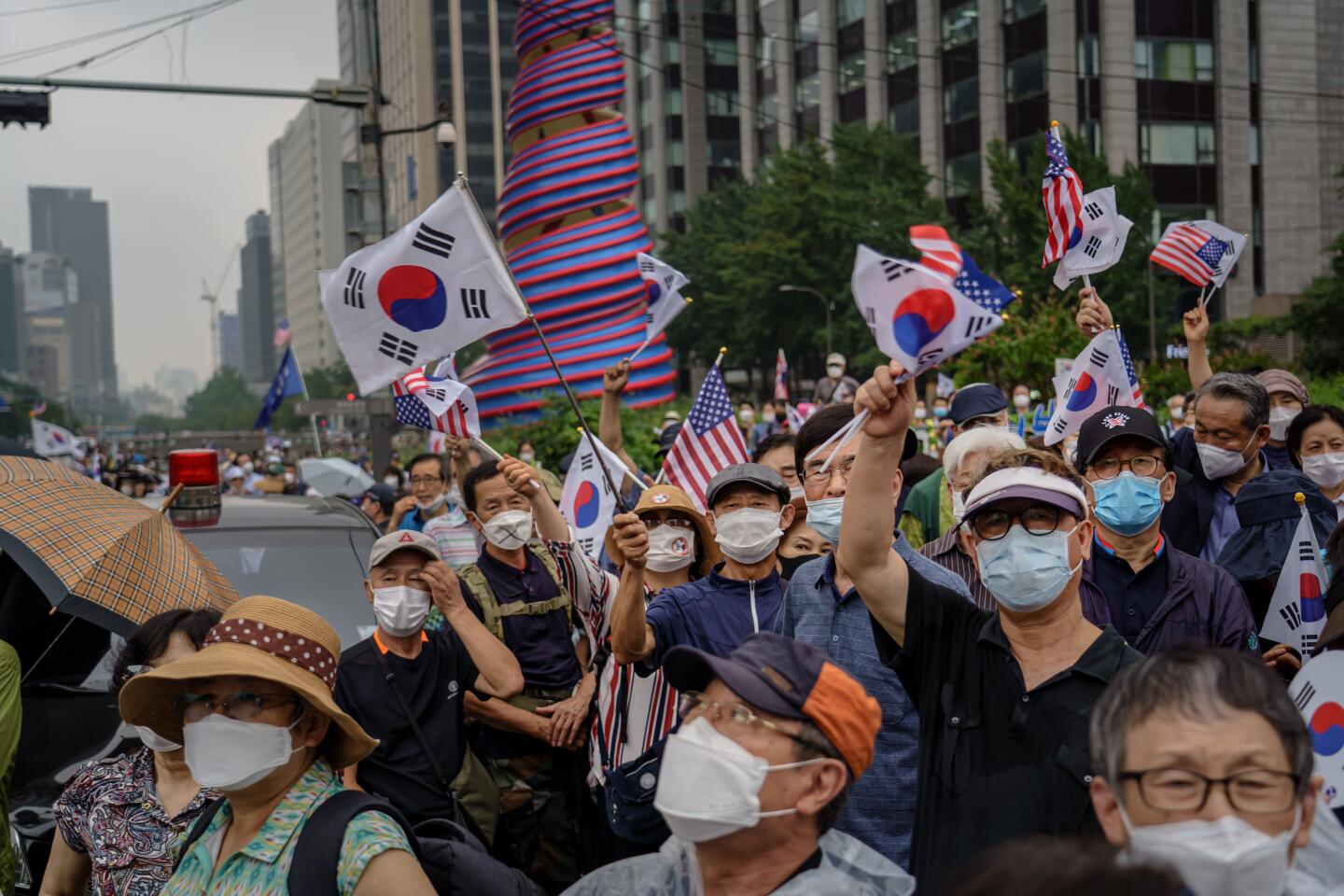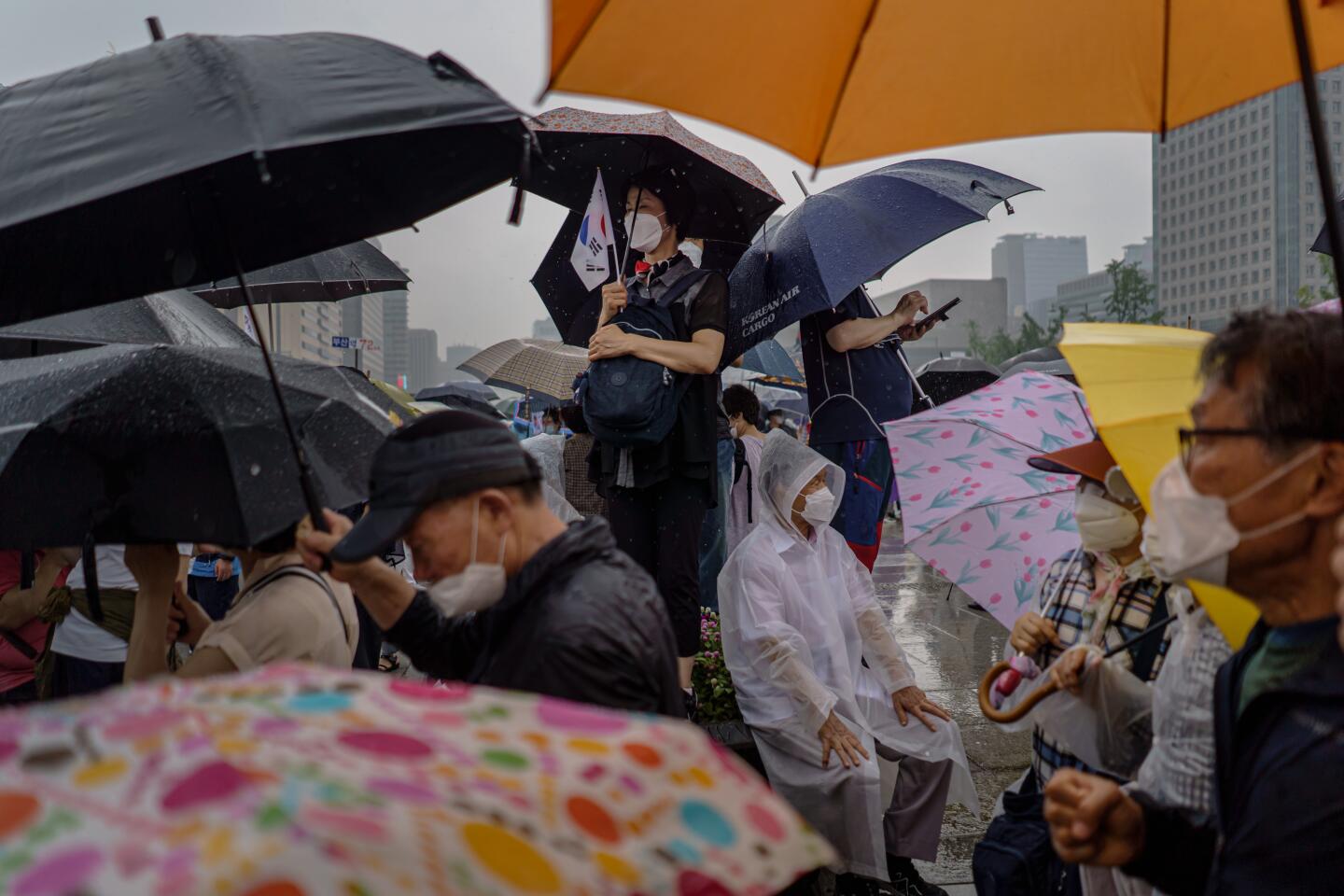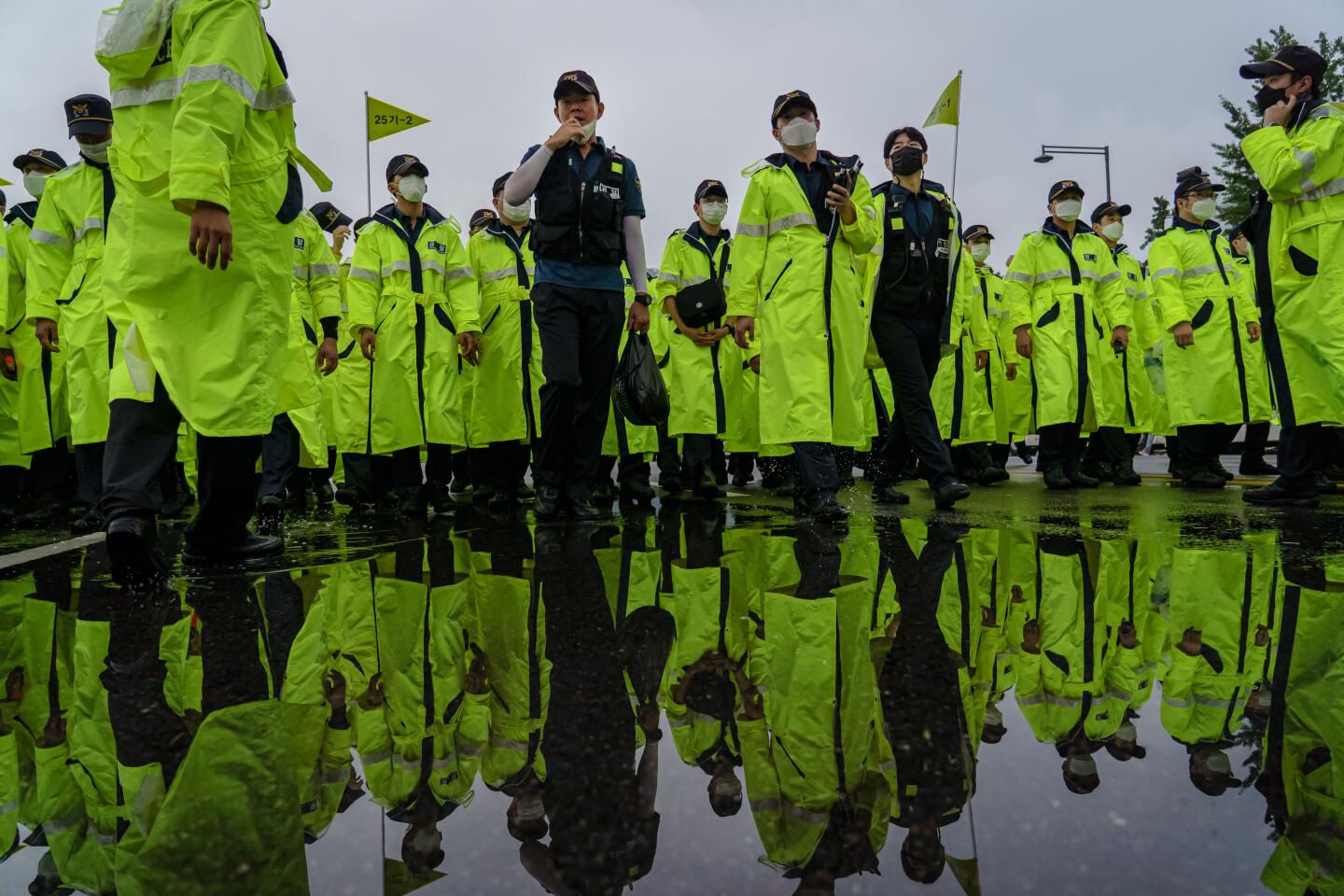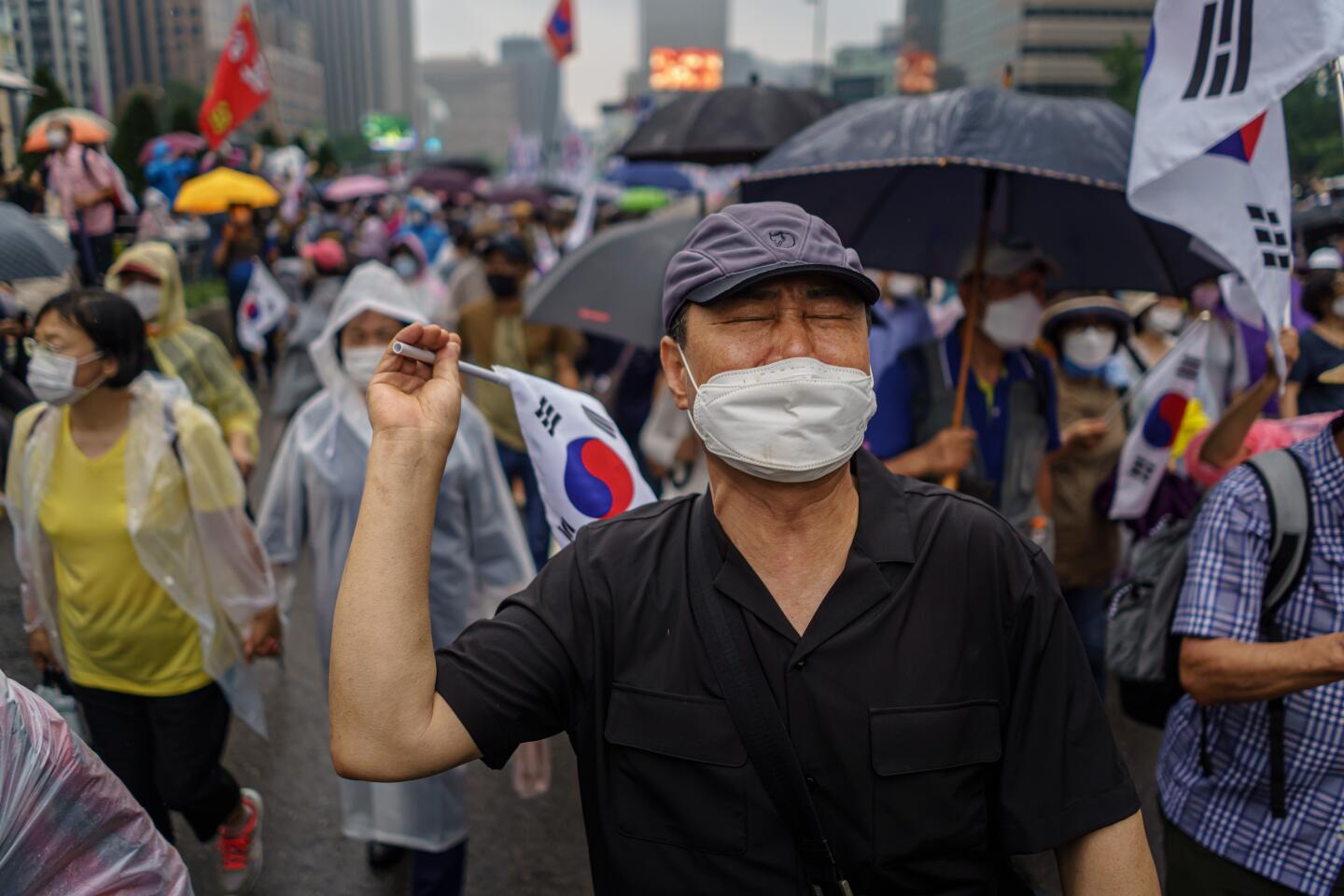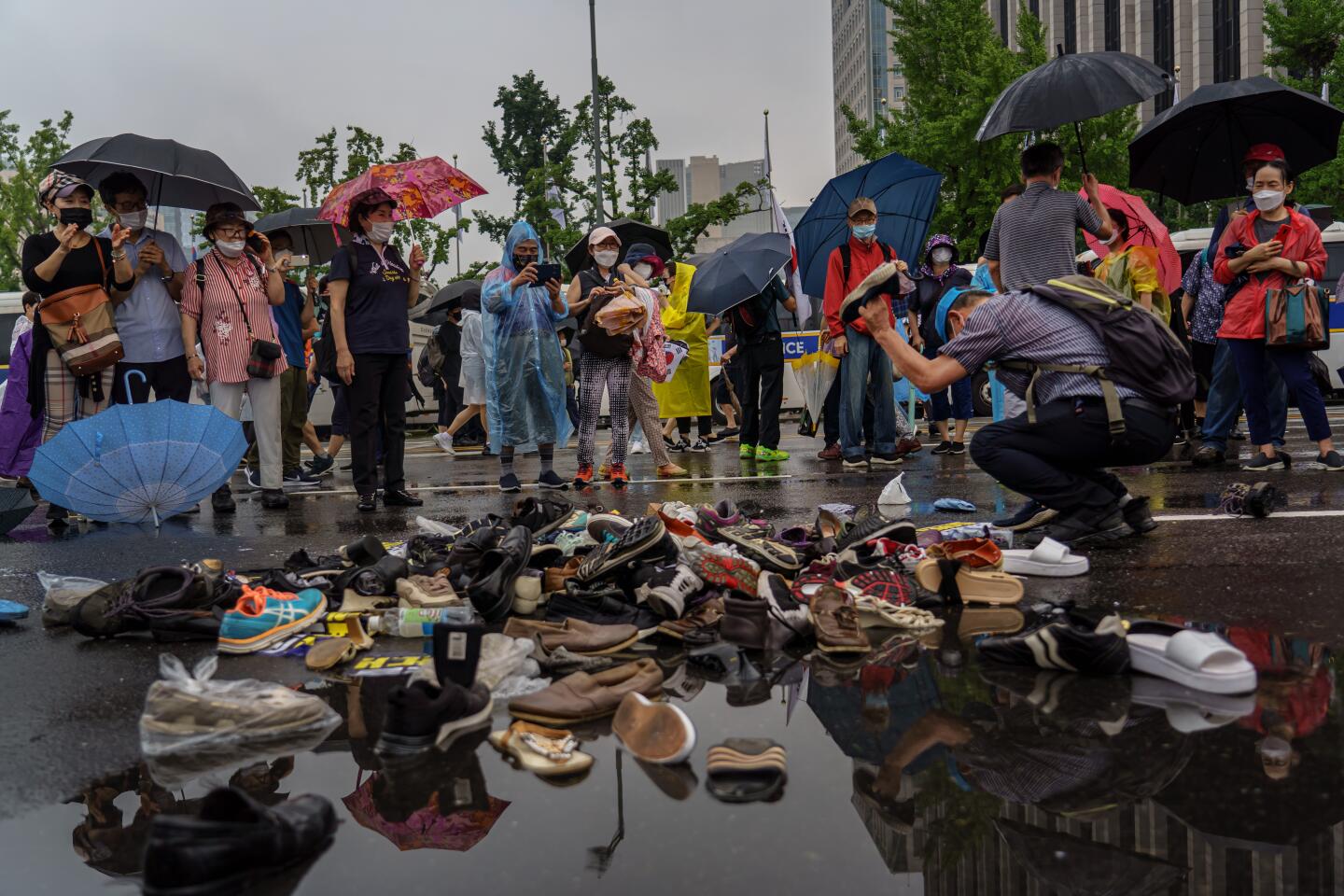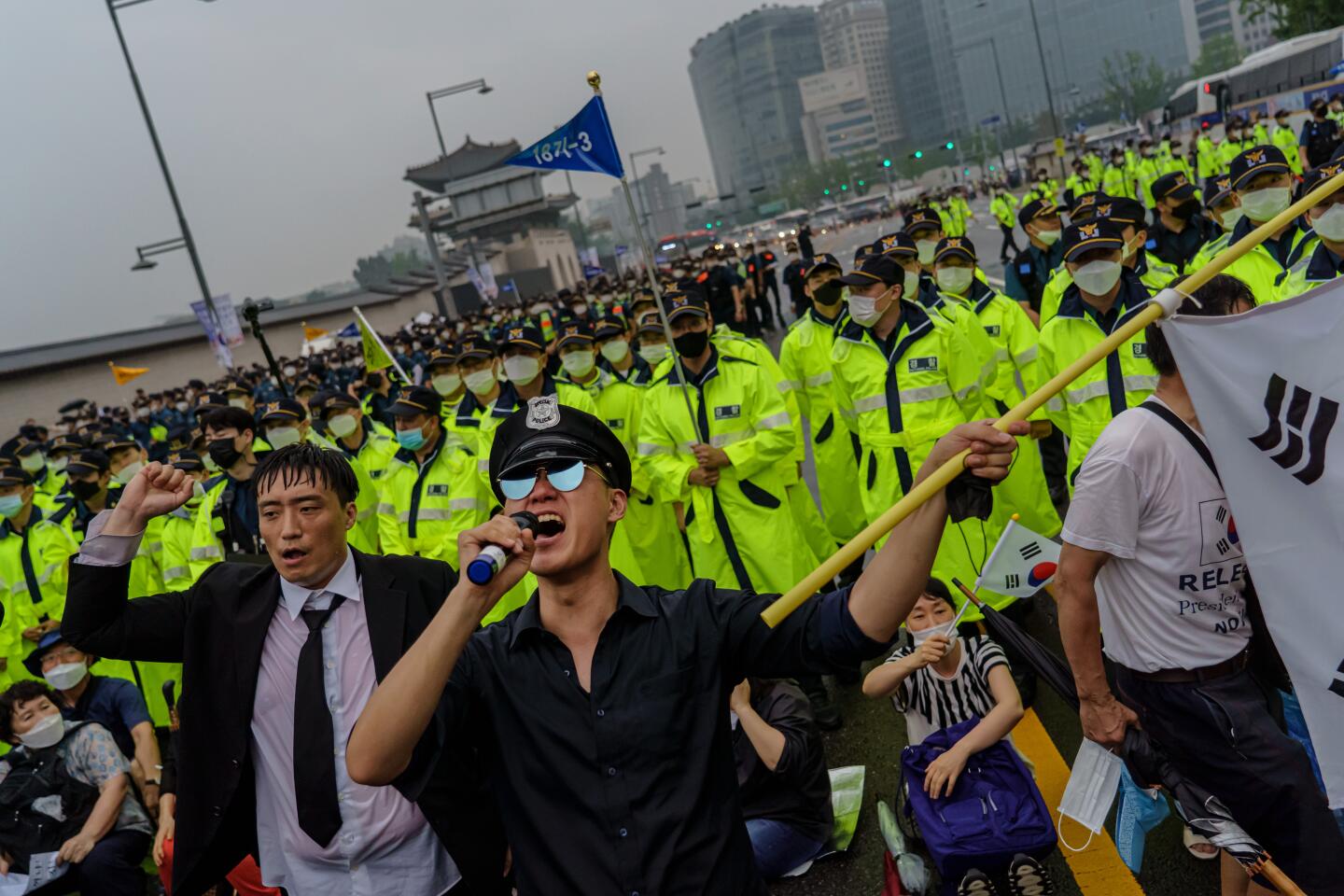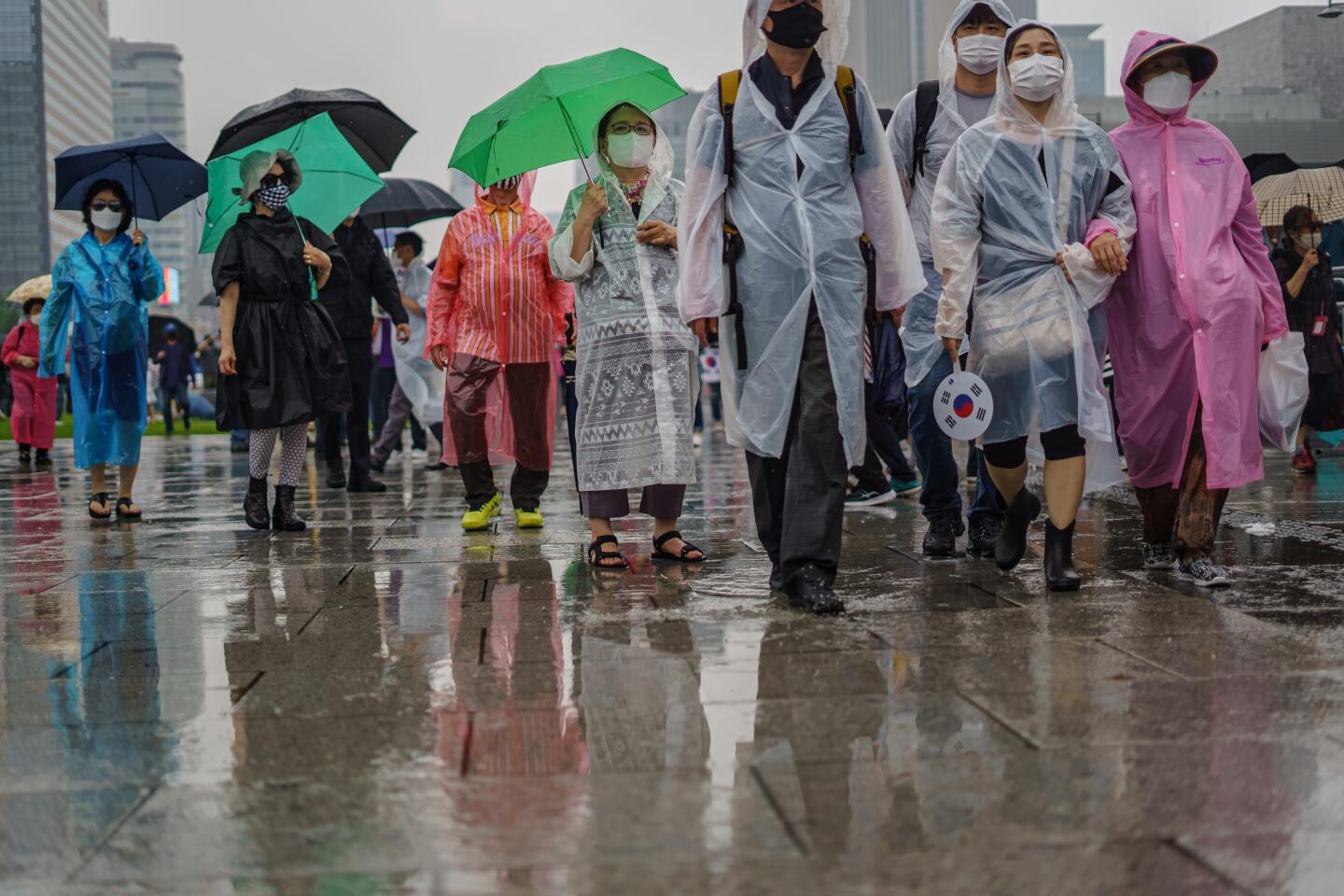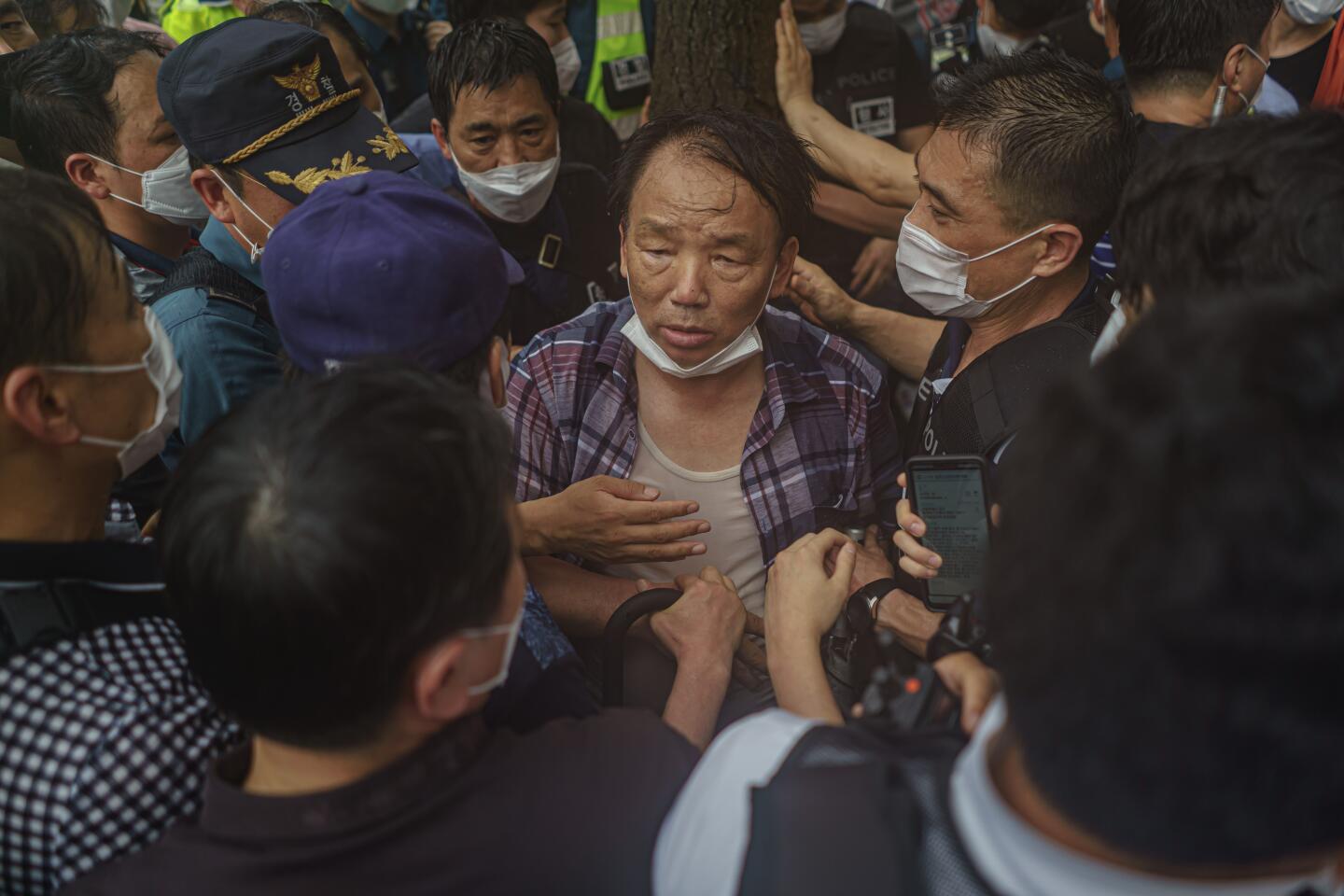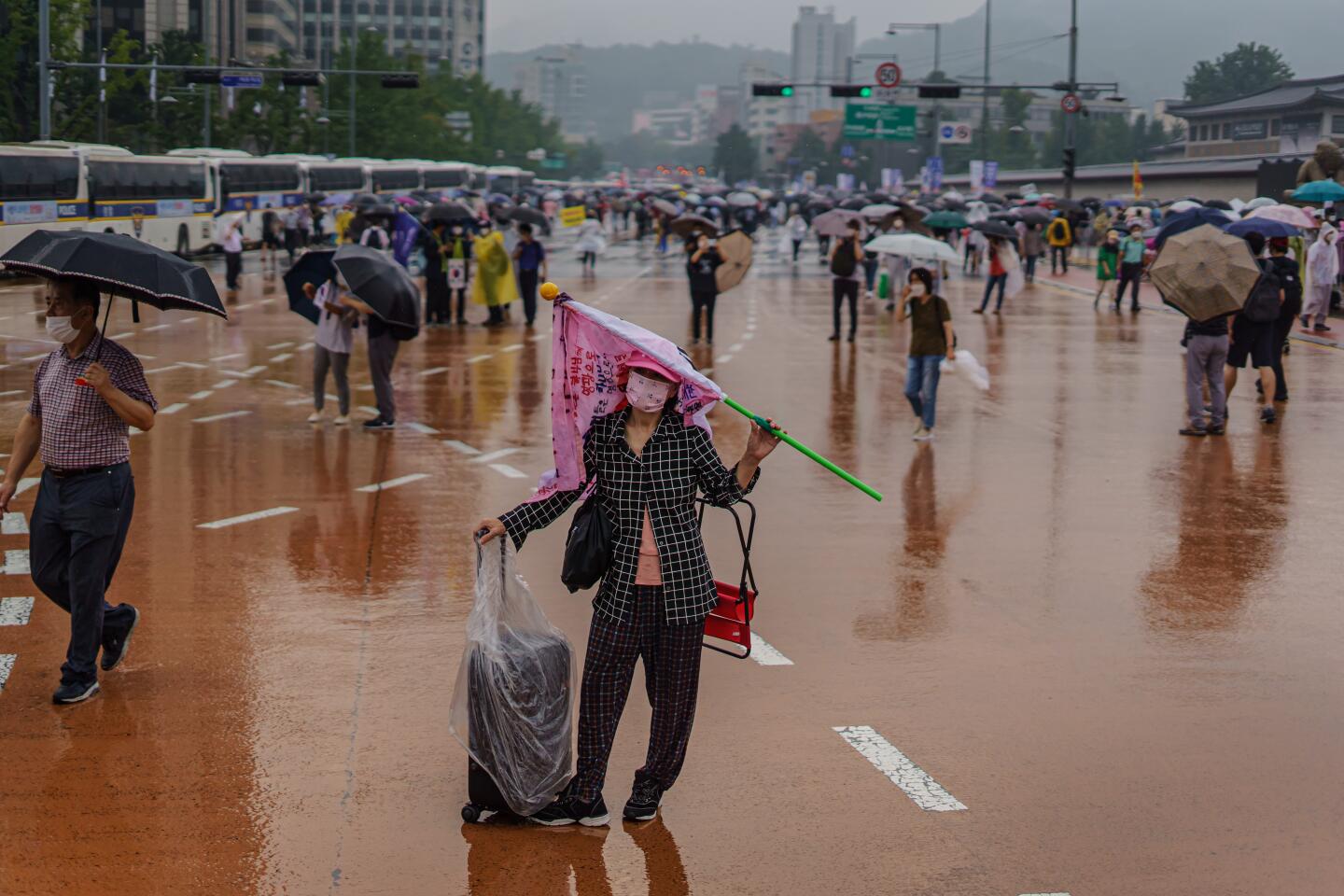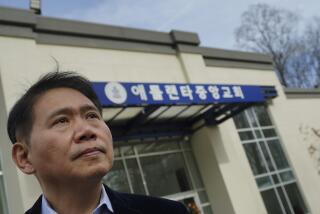Pastor of South Korean church linked to at least 300 coronavirus cases tests positive
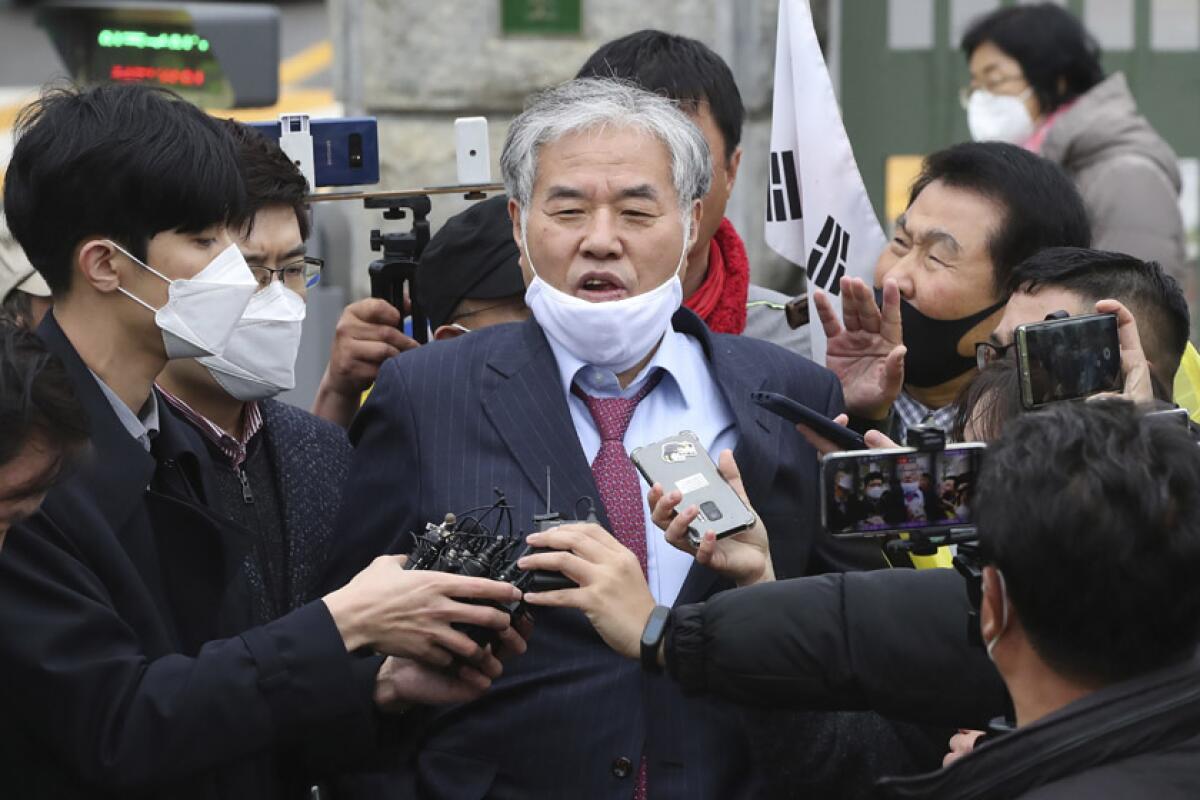
- Share via
SEOUL — A controversial South Korean pastor who defied public health authorities to hold services and massive anti-government rallies despite the COVID-19 pandemic has tested positive for the coronavirus, officials said Monday.
The church led by the Rev. Jun Kwang-hoon has been at the center of a growing cluster of cases in the capital, Seoul, which until recently had avoided large numbers of coronavirus infections despite a population of 10 million. More than 300 members of Jun’s 4,000-member Sarang Jeil Church have tested positive for the virus thus far, according to authorities.
South Korea has been struggling to keep a lid on outbreaks in the densely populated greater Seoul area — in offices, fast-food restaurants and markets, but especially in some of the country’s large churches. On Monday, the country reported 197 new infections, the fourth day in a row of cases in triple digits.
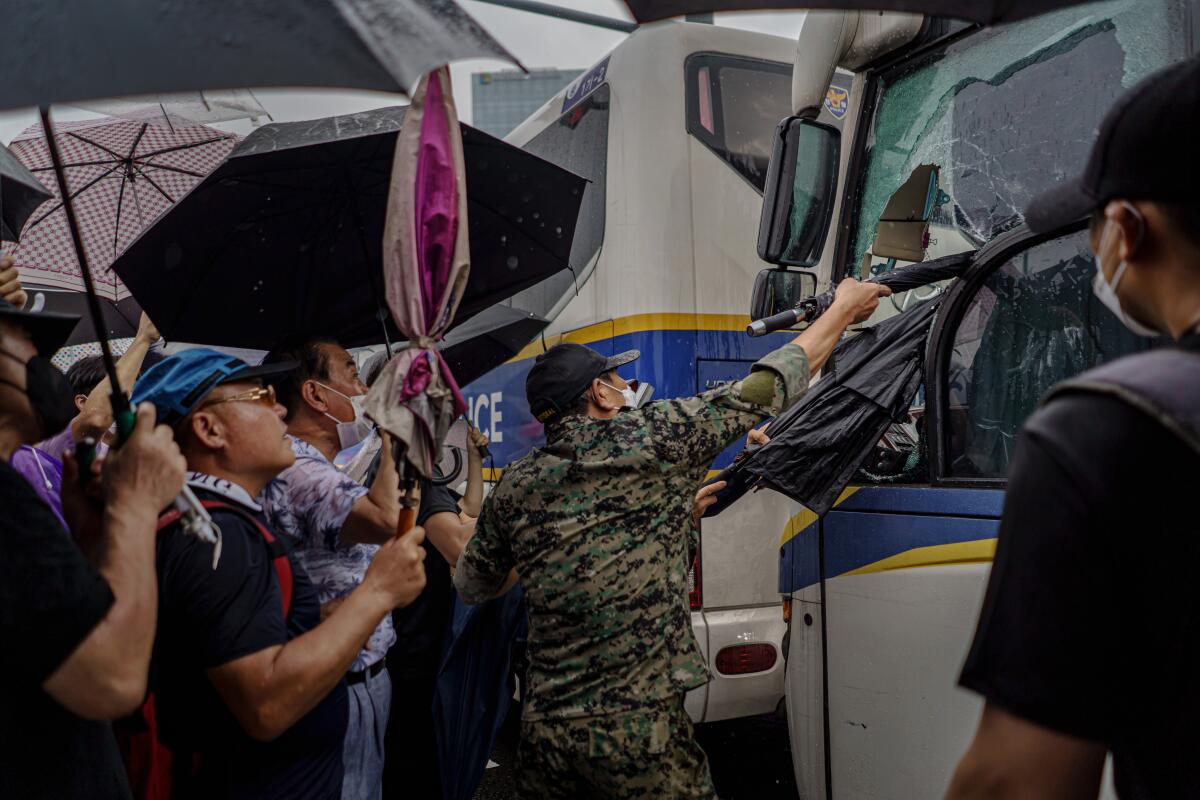
The 64-year-old Jun is a firebrand right-wing pastor with a fervent following who has been waging a caustic public battle against South Korean President Moon Jae-in, particularly for his conciliatory North Korea policies. Jun is currently on bail after being arrested on suspicion of election-related charges and of flouting orders from health authorities with his mass gatherings.
His positive coronavirus test result comes after he spoke at a densely packed conservative rally in central Seoul on Saturday. Jun and his followers were among thousands who crowded the downtown area, clashing with police.
On stage, after first pulling his mask down to his chin and then taking it off to hold up in the air, Jun asserted that the outbreak among church members was a conspiracy to undermine him, saying that the virus had been intentionally brought into his congregation by outsiders.
Would you scan a QR code to go clubbing? In South Korea, it’s now required.
For his part, Moon expressed concern that some churches at the center of outbreaks had not been cooperative with regard to testing and contact tracing, putting the country at risk.
“It’s senseless behavior that throws cold water on the long effort by the Korean people to prevent the spread of the coronavirus,” the president wrote in a message on social media Sunday. “It’s a direct challenge to the nation’s disease-prevention system and inexcusable conduct that endangers people’s lives.”
Jun’s invective against Moon — he once likened the president to Hitler — have made him controversial even among Christian leaders but earned him a steady base of support, especially among older South Koreans critical of Moon and his approach to North Korea. Jun has been openly defiant of coronavirus-related restrictions on church services or gatherings from the onset of the pandemic.
In February, when South Korea was first experiencing a spike in cases, he told followers at a massive rally of thousands that they shouldn’t be afraid of the virus.
“Has anyone here been infected? Come to services next week,” he said at the time. “God will heal it all.”
South Korea’s public health authorities said they were running into resistance from Jun’s church after the first congregant tested positive last week. They said rumors were circulating among its members that tests for the virus were rigged and would all come back positive.
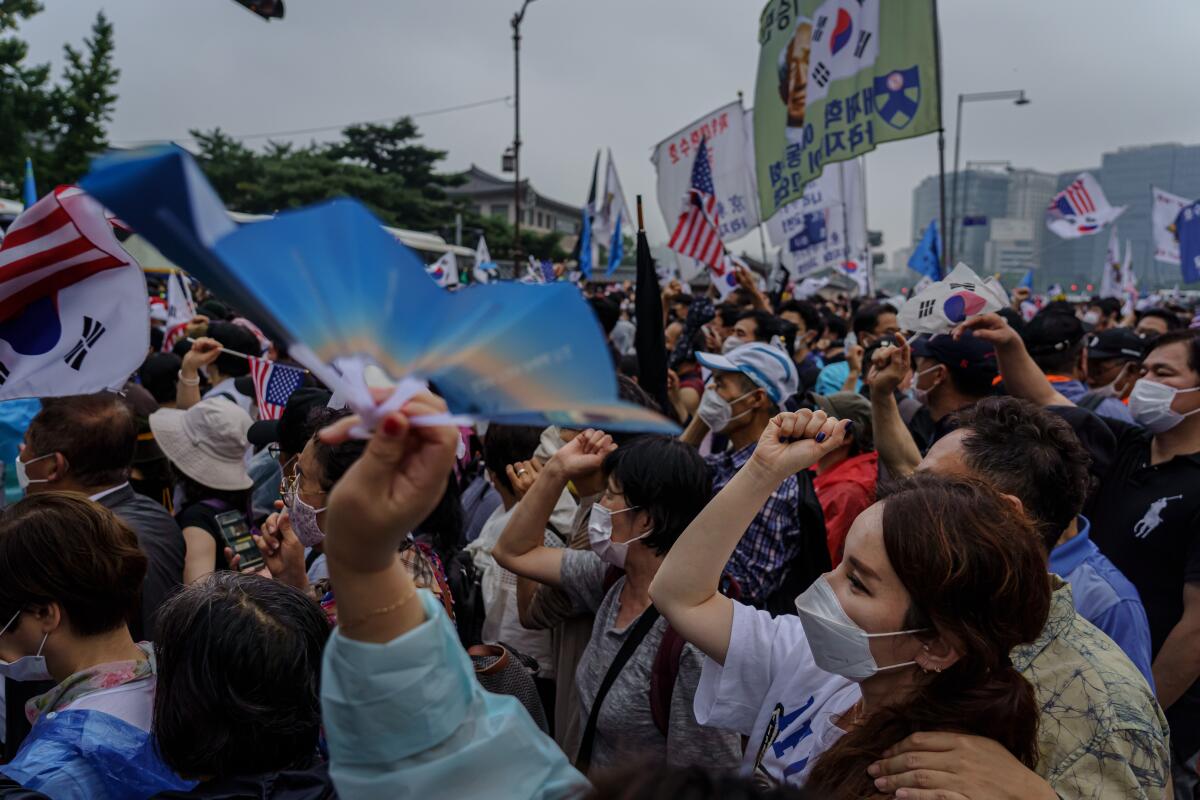
Officials warn that the country is in the beginning stages of a widespread coronavirus caseload surge after months of keeping the daily number below 100 through an extensive contact tracing regime aimed at identifying and isolating the infected.
South Korea’s first spike in cases also came from a fringe Christian church. A cluster of cases that emerged among the believers of the Shincheonji Church of Jesus, which some have called a cult because of its unorthodox teachings, eventually rose to more than 5,000 infections.
Authorities last week charged founder Lee Man-hee and other church leaders for obstructing justice and violating disease-prevention laws, alleging that they turned over misleading or incomplete information to investigators trying to track down infections.
More to Read
Sign up for Essential California
The most important California stories and recommendations in your inbox every morning.
You may occasionally receive promotional content from the Los Angeles Times.
